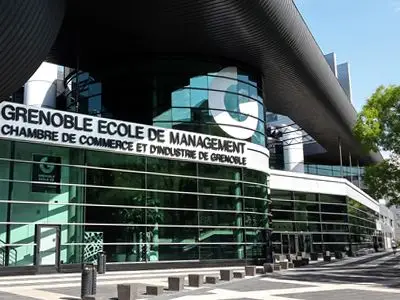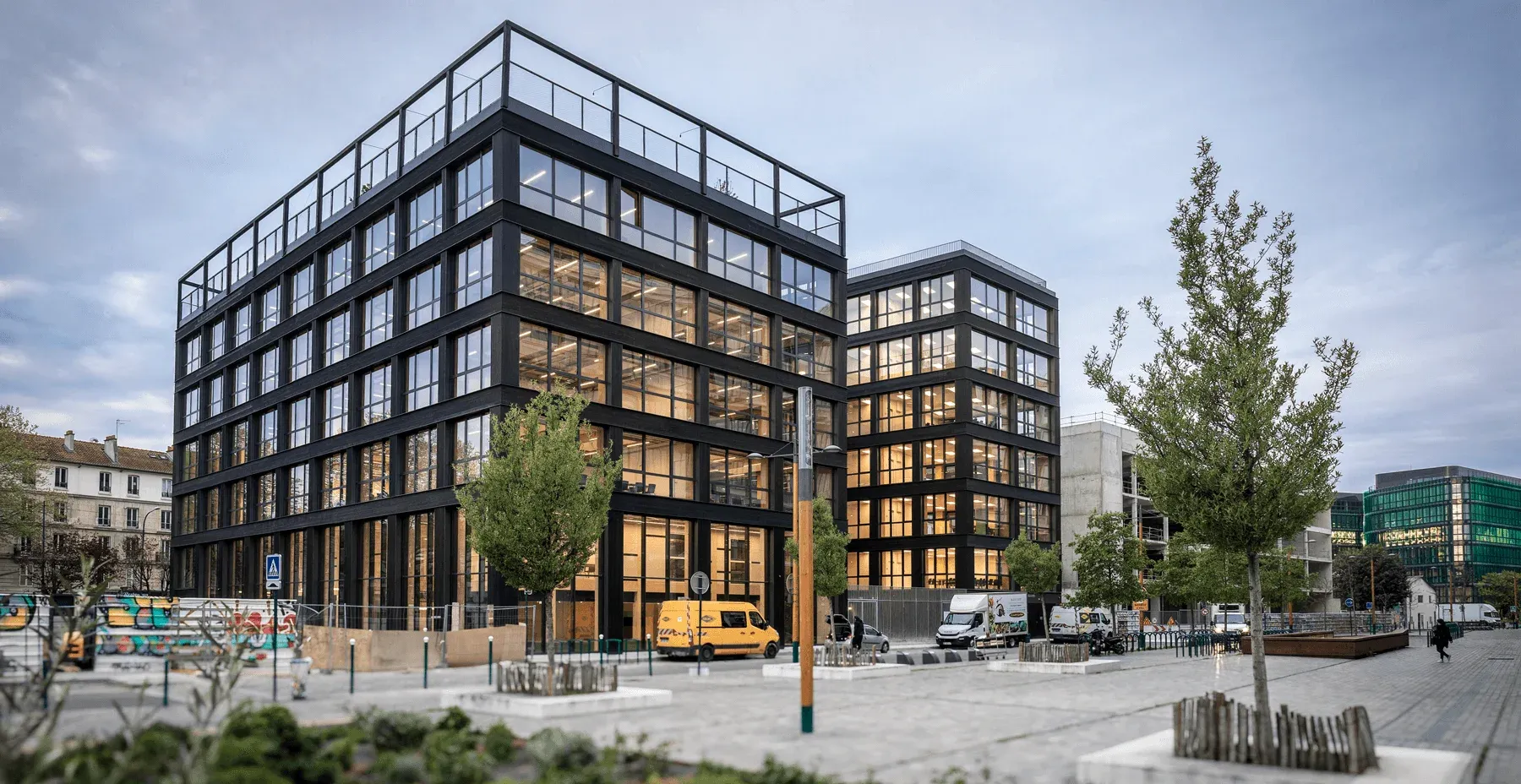Sustainable Campus
One of the main areas of our environmental commitment is reflected in the management of our campuses. As a Société à Mission, we have adopted a systemic approach to reduce our carbon footprint, improve waste recovery, and engage our community around shared objectives.

Waste Management

On our campuses in Grenoble and Pantin, waste management is considered a lever for environmental and social impact. In 2024, more than 11 tons of materials were sorted and recovered thanks to detailed collection systems and partnerships with social and solidarity economy organizations such as ELISE and Lemon Tri.
The main waste streams (paper, cardboard, plastic, furniture, coffee grounds, glass…) are directed to specialized channels with full traceability. This approach helps reduce our carbon footprint — over 11,000 kg of CO₂ avoided — and creates work hours for people in job integration programs, contributing to sustainable employment.

Our campuses also focus on raising awareness among users through educational materials, clear instructions, and regular monitoring of sorting quality. On average, more than two-thirds of recyclable waste is correctly sorted, showing the involvement of our community.
Carbon Strategy
Our carbon strategy is based on two pillars: rigorous measurement of our emissions through the Bilan Carbone® and a reduction pathway aligned with international standards, including Science-Based Targets (SBTi) and the ACT Pas à Pas methodology developed by ADEME.
Carbon Assessment
The 2024 Carbon Assessment covers all emissions from the school across its three sites (Grenoble Sémard, GEM Labs, Pantin), including scopes 1, 2, and 3:
- 9,481 tonnes of CO₂e emitted in 2024
- 44.7% of emissions linked to student travel
- 38.9% linked to inputs (purchases, meals, digital…)
- 21% reduction in emissions compared to our last full assessment in 2019
This assessment helps identify priority action areas: mobility, food, digital, procurement, energy…
A Carbon Reduction Pathway for 2030 and 2050
Grenoble École de Management is committed to reducing its greenhouse gas emissions, following a trajectory aligned with the +1.5°C target.
Each year, we conduct our Carbon Assessment with the support of our students, who are trained in emissions analysis and in developing practical recommendations. Their involvement strengthens our ability to make lasting changes on campus.
This approach is part of a structured strategy supported by an operational roadmap co-developed with the Convention des Entreprises pour le Climat (CEC) and validated by our Board of Directors.

